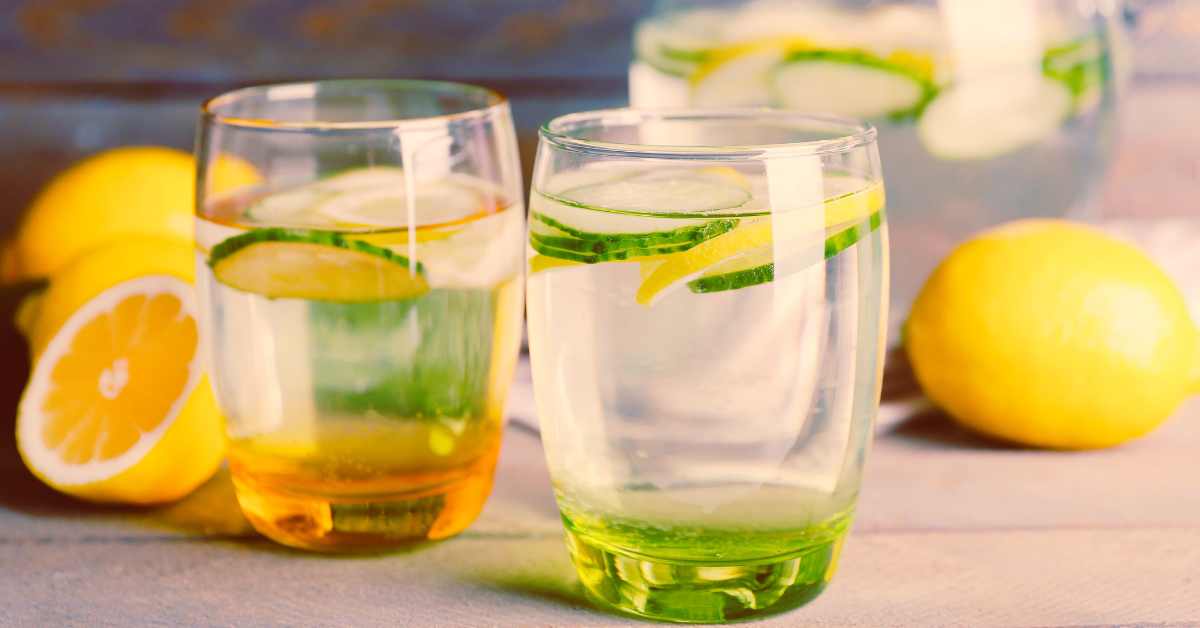What are the best foods that reduce water retention? It is a common health issue, that affects many people. It involves the accumulation of excess fluid in the body’s tissues, leading to swelling and discomfort.
The right diet plays a crucial role in managing this condition. Understanding how certain foods impact water retention can help in reducing its side effects.
This article explores various dietary choices and lifestyle changes that can aid in reducing water retention, also known as edema.
After implementing these dietary changes, you’ll feel more confident and comfortable in your best swimsuit this summer
The goal is to provide a comprehensive guide on how diet influences this condition and offer practical tips for everyday life.
Understanding Water Retention
Water retention, or fluid retention, occurs when excess fluids build up inside the body. It can cause swelling in the hands, feet, ankles, and legs.
There are several causes, including diet, lifestyle, and medical conditions. Consuming foods high in salt is one of the primary dietary causes.
Salt causes the body to hold onto water. Other factors include a lack of exercise, certain medications, and hormonal changes. Understanding these causes is the first step in managing this health concern.
A balanced diet, rich in certain nutrients, can significantly reduce these symptoms.
Eating to Reduce Water Retention
When it comes to foods that reduce water retention, potassium-rich foods are key. They help balance the levels of sodium in the body. Foods high in potassium include bananas, avocados, and leafy greens.
Additionally, foods with high water content, such as cucumbers and watermelons help reduce bloating due to their diuretic nature.
They do this by increasing urine production, which helps flush out excess fluids.
Top 7 Foods That Reduce Water Retention
To effectively reduce water retention, consider incorporating these seven foods into your diet:
- Bananas: Rich in potassium, bananas help regulate the fluid balance in your body, countering the effects of high sodium intake.
- Leafy Greens: Vegetables like spinach and kale are high in potassium and magnesium, essential minerals for reducing water retention.
- Watermelon: With its high water content and natural diuretic properties, watermelon is excellent for flushing out excess fluids.
- Cucumbers: Low in calories and high in water, cucumbers are great for hydration and reducing swelling.
- Celery: This vegetable is not only high in water but also contains phthalides, which can help reduce fluid retention.
- Asparagus: Known for its natural diuretic properties, asparagus can help your body get rid of excess water.
- Avocados: Packed with potassium and healthy fats, avocados help maintain a healthy fluid balance in the body.
Foods That Cause Water Retention
Salty foods, including processed meats and snacks, contain high levels of sodium. They should be consumed in moderation.
Foods high in refined sugars and a lot of carbohydrates can also contribute to water retention.
These things can lead to spikes in insulin, which in turn can increase sodium retention and excess water buildup.
Being mindful of these dietary choices is essential to your overall health.
Drink Water, Cut out Alcohol & Caffeine
Staying adequately hydrated by drinking water is essential in managing water retention.
Contrary to what one might assume, consuming enough water can help reduce fluid retention.
When the body is dehydrated, it tends to hold onto water, leading to swelling and bloating. By drinking sufficient water, you signal your body that there is no need to conserve water, thus reducing retention.
On the other hand, it’s advisable to limit the intake of alcohol and caffeine. Both alcohol and caffeine can lead to dehydration, prompting the body to retain water.
Alcohol can also contribute to inflammation and swelling, exacerbating water retention issues.
Similarly, while caffeine is a mild diuretic, it can lead to dehydration if consumed in large quantities.
Moderating the consumption of these beverages and prioritizing water intake can significantly aid in reducing water retention and maintaining overall fluid balance in the body.
Avoid Salty Foods
One of the most effective ways to manage bloating is to limit the intake of salty foods.
Salt, or sodium chloride, is a major contributor to fluid retention in the body. When you consume too much salt, your body holds onto fluid to maintain a balanced concentration of salts in your bloodstream.
This retention can lead to swelling and bloating, particularly in the extremities.
Processed and packaged foods are often high in sodium, so it’s important to read labels and choose lower-sodium options.
Fast foods, canned soups, and snacks like chips and pretzels are typical high-salt culprits. Instead of relying on these, opt for fresh, whole foods that are naturally low in sodium.
In cooking, experiment with herbs and spices to flavor your meals instead of salt.
For salt-free options, try lemon juice, garlic, pepper, and a variety of herbs. They can add delicious flavors.
Eat Enough Potassium-rich Foods
Eating enough potassium-rich foods is a key strategy. Potassium is a vital mineral that helps balance sodium levels in the body, crucial for maintaining fluid equilibrium.
When your diet is rich in potassium, it counteracts the effects of sodium and aids in flushing out excess levels from the body.
Foods high in potassium include bananas, oranges, sweet potatoes, spinach, avocados, and tomatoes.
These foods not only help but also offer other health benefits like improved heart health and better muscle function.
Incorporating a variety of these potassium-rich foods into your meals can be both delicious and beneficial.
It’s important to consume these foods in moderation, especially if you have kidney-related health issues, as too much potassium can be harmful in certain conditions.
Diet and Lifestyle Changes
In addition to specific foods, overall diet, and lifestyle changes can significantly impact water retention.
Reducing salt intake is one of the most effective ways to manage retention.
Opting for natural spices and herbs instead of salt can help flavor food without contributing to fluid buildup. Increasing the intake of magnesium and vitamin B6 can also be beneficial.
These nutrients are known to reduce water retention and can be found in nuts, whole grains, and leafy green vegetables.
Regular exercise is another key factor in reducing retention. Physical activity helps stimulate blood circulation and lymphatic system function, aiding in the removal of excess fluids.
Additionally, staying well-hydrated paradoxically helps prevent the body from holding onto fluids.
Implementing these dietary and lifestyle changes can be a powerful way to manage and reduce bloating.
Potassium: A Key Mineral
Potassium plays a vital role in managing fluid retention. It helps balance sodium levels in the body, which is crucial for maintaining fluid balance. A diet rich in potassium can significantly help.
Foods high in potassium include bananas, oranges, potatoes, and spinach.
These potassium-rich foods help the body eliminate excess sodium and reduce pressure on blood vessels, thereby reducing retention.
Including a variety of these foods in your diet is an effective strategy.
It’s important to note that while potassium is beneficial, it should be consumed in moderation, especially for people with kidney-related issues.
Eat More Fruits
Incorporating more fruits into your diet is a delightful and effective way to combat water retention.
Fruits are naturally high in water content, vitamins, and minerals, particularly potassium.
Citrus fruits like oranges, lemons, and grapefruits are especially beneficial due to their diuretic properties, helping to flush out excess sodium and fluids.
Additionally, fruits like watermelon and berries contain antioxidants that support overall health.
Eating a variety of fruits ensures a natural intake of essential nutrients. They can be enjoyed as snacks, in salads, or as part of a balanced meal.
Regular consumption of fruits is not just a tasty way to reduce bloating, but it also contributes to a healthier, more balanced diet.
The Role of Magnesium and Vitamin B6
Magnesium helps regulate the body’s fluid balance, while Vitamin B6 is known for its diuretic effect, which helps reduce excess fluid.
Foods rich in magnesium include nuts, seeds, whole grains, and green leafy vegetables. Vitamin B6 can be found in foods like bananas, avocados, and poultry.
Regular intake of these nutrients is important. They work by enhancing kidney function and fluid excretion, thus reducing the likelihood of fluid buildup.
Enhancing Digestive Health
A healthy digestive tract ensures efficient processing of foods and absorption of nutrients, which in turn helps regulate the body’s fluid balance. When the digestive system is functioning optimally, it reduces the likelihood of bloating.
Incorporating fiber-rich foods like whole grains, vegetables, and fruits into your diet can significantly improve digestive health.
Fiber aids in regular bowel movements and prevents constipation, which can contribute to bloating.
Probiotic foods such as yogurt, kefir, and fermented vegetables like sauerkraut also promote a healthy gut by supporting the growth of beneficial bacteria.
Staying hydrated is equally important for digestive health. Adequate water intake helps dissolve fibers and facilitates smooth digestion.
Additionally, limiting the intake of highly processed and fried foods can prevent digestive discomfort. By focusing on a diet that supports digestive health, you can effectively manage and reduce water retention.
Conclusion
In conclusion, managing water retention involves a combination of dietary choices and lifestyle changes.
Reducing the intake of salty foods, increasing the consumption of potassium-rich foods, and incorporating nutrients like magnesium and Vitamin B6 are effective strategies.
Regular exercise and staying hydrated are also crucial in reducing water retention.
By understanding the causes and implementing these changes, one can effectively manage and reduce these symptoms.
It’s important to remember that while diet plays a significant role, consulting with a healthcare professional is recommended for persistent or severe cases.

Claudia Faucher is a fitness and lifestyle blogger who shares practical tips for women over 50 on staying active, stylish, and confident. As the creator of FitFab50.com and Beyond59.com, she covers topics like workout gear, beauty trends, and wellness routines. Claudia is passionate about helping others live their best life at any age.
